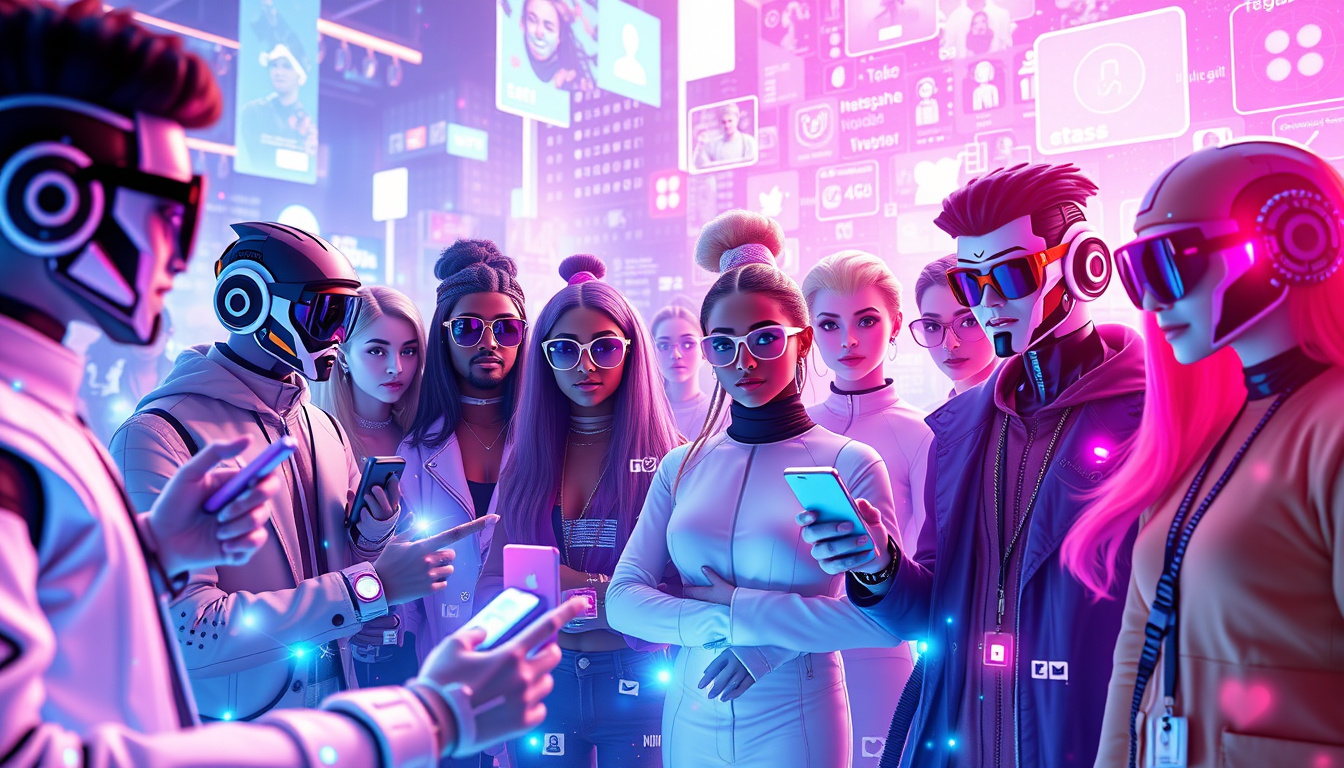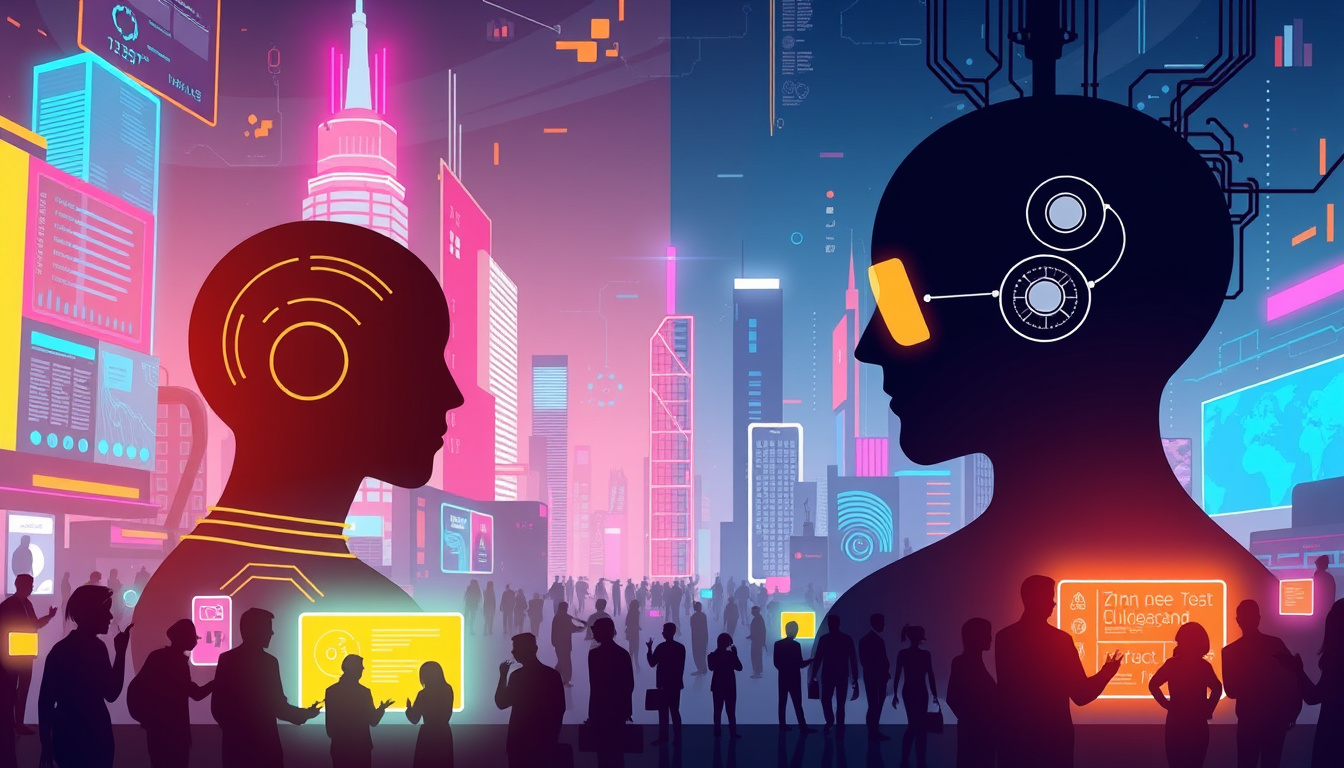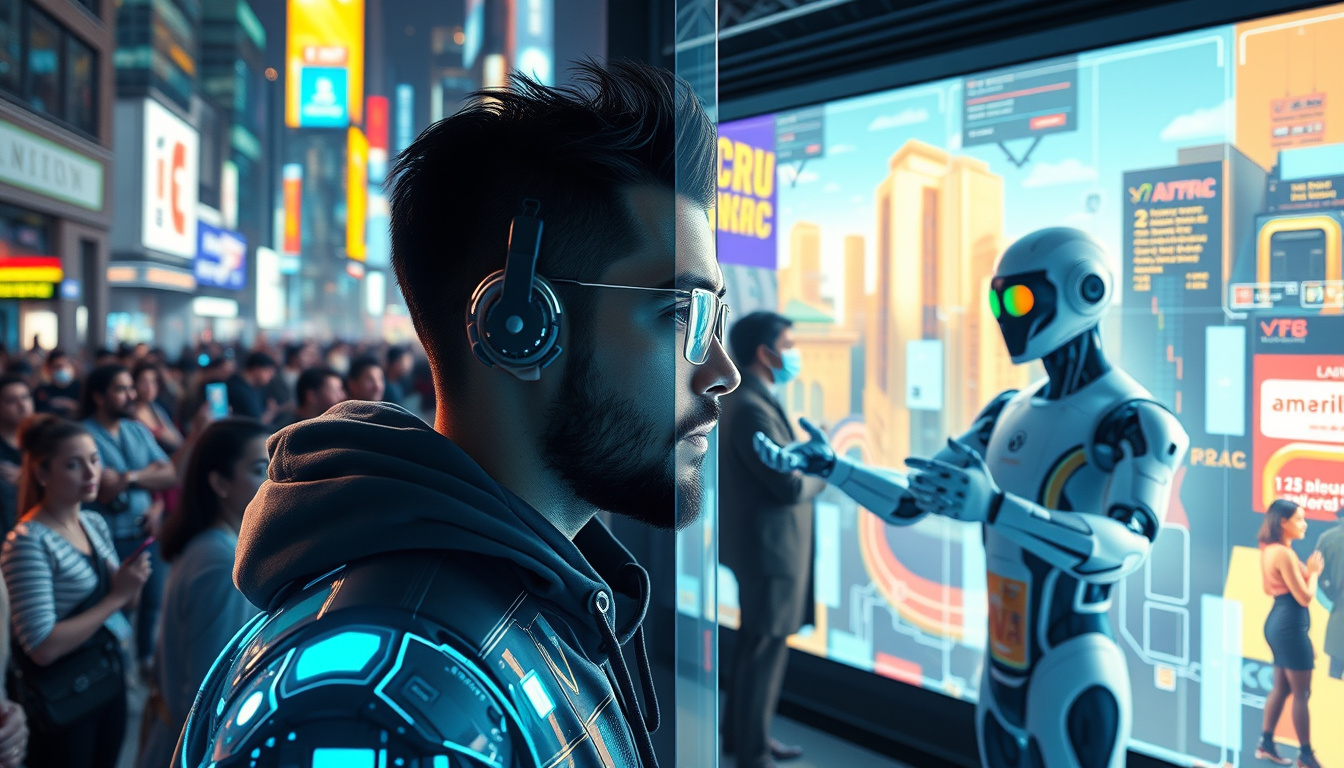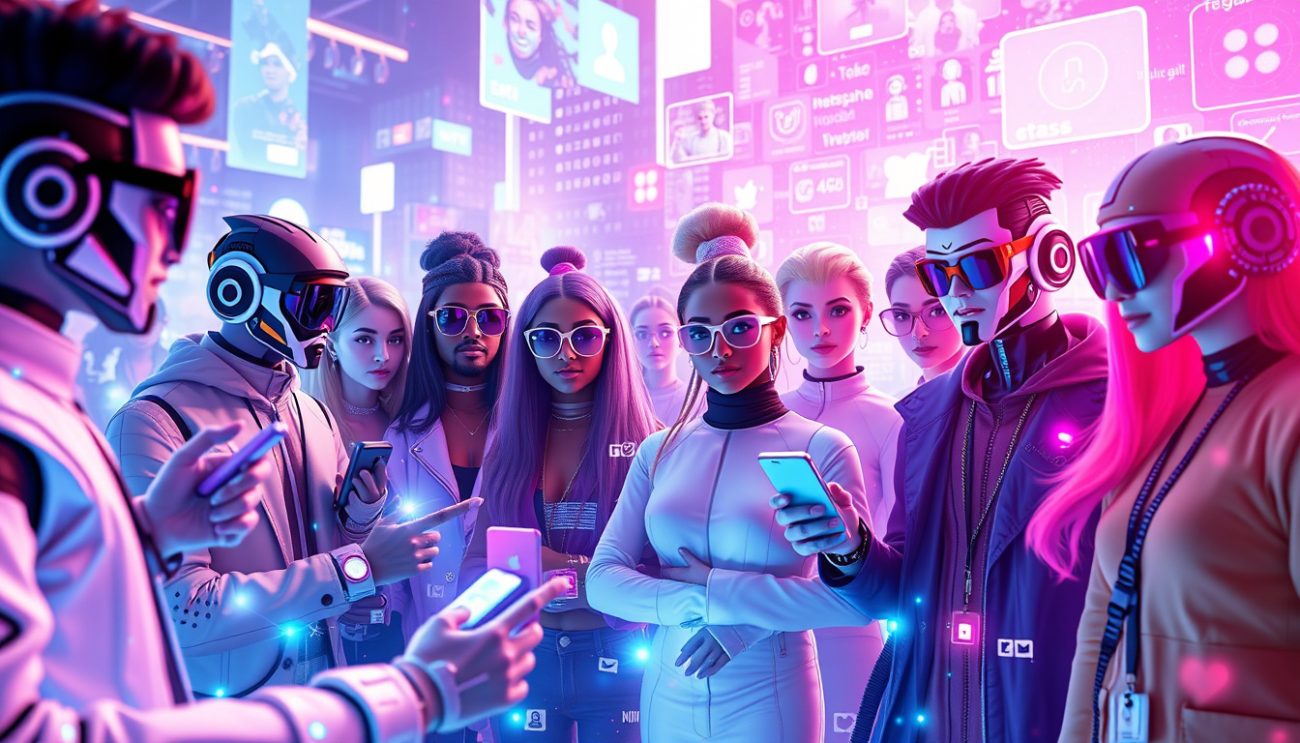In the ever-evolving landscape of social media, TikTok has emerged as a frontrunner, captivating millions with its short, engaging video format. But as we dive deeper into this digital realm, a fascinating trend is taking center stage – TikTok’s ‘Digital Ghosts’: The Rise of AI-Generated Influencers. These virtual personalities, created entirely by artificial intelligence, are not just figments of imagination; they have real followers, partnerships, and a unique ability to influence the digital conversation. In this article, we will explore the phenomenon of AI-generated influencers, examining their appeal, the ethical considerations surrounding their use, notable case studies, and the potential future of influencing as humans and AI continue to coexist in this space.

Key Takeaways
- AI-generated influencers, known as ‘digital ghosts’, are becoming increasingly popular on TikTok.
- The allure of digital ghosts lies in their ability to engage audiences with unique and captivating content.
- The rise of AI influencers raises important ethical considerations regarding authenticity and personal connection.
- Successful case studies demonstrate that AI influencers can achieve high levels of user engagement and brand partnerships.
- The future of social media influencing may blur the lines between human creators and AI-generated personas.
Understanding AI-Generated Influencers
In recent years, TikTok’s ‘Digital Ghosts’ have captivated audiences and reshaped the social media landscape, marking the rise of AI-generated influencers. These virtual personas, created using advanced artificial intelligence algorithms, offer brands a novel way to engage with consumers. By mimicking human behavior and interaction, AI-generated influencers can seamlessly adapt their content to align with trending topics, making them highly relatable to their audience. Unlike traditional influencers, these digital avatars can maintain a constant online presence and are free from the personal controversies or scandals that can tarnish a human influencer’s reputation. As a result, TikTok’s ‘Digital Ghosts’ not only provide a controlled marketing environment for companies but also open up a new realm of creativity and innovation in content creation. Exploring this phenomenon reveals how AI-generated influencers are not just a fleeting trend, but rather a glimpse into the future of digital marketing and consumer engagement.
The Appeal of Digital Ghosts in Social Media
In recent years, TikTok’s ‘Digital Ghosts’: The Rise of AI-Generated Influencers has captivated a wide audience, drawing attention from both consumers and marketers alike. These virtual personalities, designed with cutting-edge artificial intelligence, have begun to shape the landscape of social media in ways previously unimaginable. With their perfectly curated content and engaging personas, AI-generated influencers on TikTok not only resonate with younger demographics but also generate significant brand interest. Their ability to create relatable moments, respond dynamically to user engagement, and maintain a consistent online presence makes them appealing to brands looking to convey authenticity with a touch of innovation. As traditional influencers continue to face challenges regarding transparency and authenticity, the emergence of digital ghosts serves as a fresh alternative, encouraging users to redefine their perceptions of influence in the digital space.
‘The future is already here – it’s just not very evenly distributed.’ – William Gibson

Ethical Implications of Using AI in Influencing
In recent years, TikTok’s ‘Digital Ghosts’ phenomenon has transformed the landscape of social media influence, raising significant ethical implications surrounding the use of AI-generated influencers. These virtual personalities are created using sophisticated algorithms and machine learning, which allow brands to design idealized personas that resonate with specific audiences. However, the allure of these AI-generated influencers comes with risks, including the potential for manipulation, loss of authenticity, and the blurring lines between reality and deception. As brands increasingly leverage TikTok’s ‘Digital Ghosts’ for marketing campaigns, it becomes crucial to consider the ethical responsibility of ensuring transparency about the artificial nature of these influencers. Are consumers fully aware that they are interacting with entities that lack genuine human emotions and experiences? The rise of AI-generated influencers on platforms like TikTok sparks a vital conversation about trust in digital marketing and the importance of maintaining integrity in an era where technology can easily fabricate reality.
Case Studies: Successful AI Influencers on TikTok
As TikTok continues to revolutionize social media, the platform has become a breeding ground for innovation, including the emergence of TikTok’s ‘Digital Ghosts’: The Rise of AI-Generated Influencers. These virtual personas are not just a novelty; they are reshaping marketing strategies for brands and creators alike. One prime example is Lil Miquela, a computer-generated influencer who has gained millions of followers. With her engaging content and relatable personality, she has successfully collaborated with major fashion brands, highlighting how AI can effectively engage audiences. Similarly, Shudu, a virtual supermodel, has made significant waves in the fashion industry by showcasing the potential of AI to represent various beauty ideals. These case studies illustrate that AI influencers can not only capture the attention of TikTok users but also drive significant consumer behavior, proving that TikTok’s ‘Digital Ghosts’ are here to stay.

The Future of Influencing: Human vs. AI
As we step further into the digital age, the emergence of TikTok’s ‘Digital Ghosts’: the rise of AI-generated influencers marks a pivotal shift in the landscape of social media and marketing. These virtual personalities, crafted from advanced algorithms and machine learning, are gaining significant traction on platforms like TikTok, offering brands a fresh avenue for engagement without the unpredictability that comes with human influencers. One of the most striking advantages of AI-generated influencers is their ability to operate 24/7, creating tailored content that resonates with specific demographics at optimal times. They do not require compensation in the traditional sense—no salary negotiations or personal brand conflicts to manage. This efficiency allows brands to maintain a steady stream of content while also experimenting with diverse styles and messages that can quickly adapt to trending topics. However, this rise of AI influencers also raises important questions about authenticity and the nature of influence itself. As brands navigate the hybrid landscape of human and AI influencers, it becomes increasingly crucial to understand the dynamics at play. Will audiences embrace these digital ghosts, or will they long for the genuine connections that human influencers have historically provided? The future of influencing is at a crossroads, where the lines between human creativity and artificial intelligence blur, inviting a fascinating dialogue about the evolution of content creation in our modern world.
Frequently Asked Questions
What are AI-generated influencers on TikTok?
AI-generated influencers, often referred to as ‘Digital Ghosts,’ are virtual personas created using artificial intelligence technology. They exist solely on social media platforms like TikTok, engaging with audiences and promoting products without being real human beings.
Why are AI-generated influencers becoming popular on social media?
The appeal of AI-generated influencers lies in their ability to capture attention with unique and often visually stunning content. They can be programmed to resonate with specific audiences, respond to trends quickly, and operate 24/7 without the limitations that human influencers face.
What are the ethical implications of using AI-generated influencers?
The use of AI-generated influencers raises several ethical concerns, including authenticity, transparency, and the potential for manipulation. Questions also arise about the impact on human influencers and the representation of real individuals in sponsored content.
Can you give examples of successful AI influencers on TikTok?
Yes, some notable examples of AI influencers on TikTok include Lil Miquela, a digital avatar with millions of followers, and Shudu, a virtual supermodel. These influencers have effectively engaged audiences and collaborated with brands, showcasing the potential of AI in social media marketing.
What does the future hold for the relationship between human and AI influencers?
The future may see a blend of human and AI influencers in social media marketing. As technology advances, AI influencers could complement human influencers by fulfilling specific roles, such as targeted advertising and engaging niche audiences, while humans provide the emotional authenticity that resonates deeply with followers.
